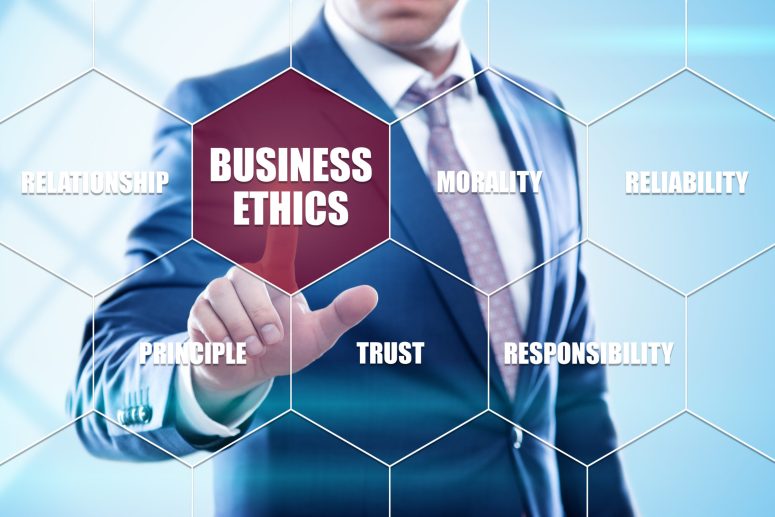
The code of ethics in the workplace is a set of principles that guides behavior and decision-making, defining what is considered right or wrong in a professional setting. Ethical behavior in the workplace includes honesty, integrity, respect for others, transparency, and fairness. Guidelines for maintaining ethical conduct typically include compliance with laws and regulations, confidentiality, conflict of interest management, and a commitment to diversity and inclusion. Elements of a code of ethics may incorporate mission statements, core values, and specific policies and procedures to ensure adherence to ethical standards throughout the organization. These guidelines help establish a positive work culture, build trust among employees and stakeholders, and promote ethical decision-making in all aspects of business operations.
- Honesty and ethical behavior
In the code of ethics, the value of honesty is paramount as it cultivates trust and integrity in all interactions. Honesty entails truthfulness, transparency, and sincerity in communication, actions, and decision-making. Upholding honesty fosters ethical behavior, promotes accountability, and ensures that individuals act in the best interest of others, maintaining a standard of fairness and credibility. It is a foundational principle that guides ethical conduct, promotes responsible behavior, and contributes to a positive and trustworthy organizational culture.
- Integrity and ethical behavior
Integrity in the workplace is a foundational value that encompasses honesty, ethical behavior, and consistency in actions and decisions. It involves adhering to moral and ethical principles, being truthful and transparent, and acting with sincerity and reliability in all professional interactions. Maintaining integrity fosters trust among colleagues, stakeholders, and clients, builds a positive organizational culture, and upholds the reputation and credibility of the organization. Individuals who demonstrate integrity exhibit strong moral character, take responsibility for their actions, and consistently uphold ethical standards, even in challenging situations. Ultimately, integrity is essential for creating a workplace environment based on trust, respect, and accountability, where ethical behavior is valued and practiced by all.
- Transparency and fairness as part of ethical behavior
Transparency and fairness in the workplace are crucial elements that contribute to a healthy and productive organizational culture. Transparency involves open communication, honesty, and accountability in decision-making processes, ensuring that employees are informed about key information, policies, and changes within the organization. This fosters trust among team members, reduces misunderstandings, and promotes a sense of inclusivity and collaboration. Fairness, on the other hand, entails treating all individuals equitably, without bias or discrimination, and ensuring that opportunities and rewards are distributed based on merit and performance. Upholding fairness in the workplace cultivates a sense of justice, respect, and equality among employees, creating a positive environment where everyone feels valued and motivated to contribute their best. By embracing transparency and fairness, organizations can enhance employee engagement, satisfaction, and overall success.
- The Dress Code as Part of Ethical Code
Dress code in the workplace plays a significant role in shaping the overall professional image and culture of an organization. It helps establish a sense of unity, professionalism, and respect among employees and can even reflect the values and brand of the company. While dress codes can vary depending on the industry, position, or company policies, adhering to a well-defined dress code can ensure that employees present themselves appropriately and maintain a level of professionalism in their interactions with colleagues, clients, and customers. Additionally, a dress code can help set expectations, promote a sense of belonging, and create a cohesive aesthetic in the workplace. Ultimately, a well-thought-out dress code can contribute to a positive work environment and enhance the overall reputation of the organization.
